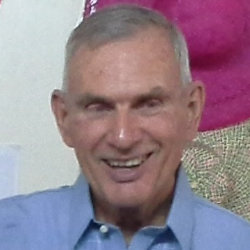Cavan Hogue. Russia and the West.
April 16, 2014
The USA and NATO seem to see their relationship with Russia as one of goodies and baddies. This is nave and their hairy chested approach is not helpful. This paper looks at the realities of Russian attitudes to the outside world.
Many foreigners write off Vladimir Putin as a fascist, a communist throwback, a brutal dictator and so on. There can be no doubt that he is strongly authoritarian and doesnt suffer opponents gladly but he is not Stalin. He was elected and there are opposition parties. Many Russians dislike him and oppose what he stands for but his appeal to Russian nationalism does not fall on deaf ears. Russians are a proud people who are glad to be rid of many aspects of Communism but feel some nostalgia for the glory days of the USSR which was strong and respected as a great power. They believe that Russia will always be a Great Power and are suspicious of Western attempts to play down Russias importance in the world. These attitudes go back way before theSoviet Union and reflect the longstanding Slavophile/Westerniser debate.
While there were obvious differences in ideology and rhetoric there were also many similarities between theUSSR and the Russian Empire, especially in their policy towards the neighbours. The Soviets kept the conquests of the Tsars and added some. This does affect the attitudes of many today. Putin is above all a nationalist who wants to restore Russian greatness and is willing to stomp on anyone who gets in the way. However, he is neither mad nor stupid and understands the difference between a kind of Russian Monroe Doctrine and conquest.
Any action by NATO needs to take account of how Russia views things even if it is only following the time tested principle of know your enemy. Russians see the West as hypocritical and are suspicious of what they see as a US desire to dominate the world and more importantly Russia. The US has a long track record of interference and aggression against other countries Mexico 1847, the Philippine Republic 1898, Nicaragua, Guatemala, Chile, Grenada, Vietnam, Iraq and so on. The Russians also have no illusions about the peaceful record of European nations. Therefore, Western rhetoric about freedom and non-interference is not seen as the righteous wrath of the just but as the hypocrisy of aggressors. Russians would ask that if it was wrong for theUSSR to have missiles in Cuba is it not equally wrong for NATO to have missiles and troops on Russian borders? We may debate the rights and wrongs of these arguments but it is how Putin and most Russians see things. Even the pro-democracy anti=Putin people are not immune from this view.
Putin knows that the US is not going to use military force against Russia and the Europeans are even less inclined to do so. Sanctions will only have the effect of reinforcing anti-Western views and perhaps persuading people who dont really like Putin to back him against the foreigners. If they were to bite economically that would resentment would be even greater. They may also encourage counter-sanctions.
So what next? Crimea is a special case. It is historically Russian, has a Russian majority and should never have become part of Ukraine. It will be absorbed into theRussian Federation but it does not follow that Russia is bent on a conquest of Ukraine or even less on the rest of the former Soviet Union. Admittedly, the Eastern Russian speaking part of Ukraine is a problem as are some other Russian enclaves from the former Soviet Union. Putin has said he will protect the interests of Russian minorities but also that he has no claims on other territory. His actions in the case of Georgia and theCaucasus are not encouraging but fear of the West did not stop him.
If the West is seriously interested in a solution, more carrot and less stick would seem to be the answer. Most Ukrainians do not want to be part of Russia and other neighbours even less so - but Ukraine is a corrupt and inefficient basket case which must give the Europeans pause for thought about how far they go in absorbing Ukraine as opposed to simply talking about its right to freedom of choice. NATO needs to be more sensitive to Russian feelings of encirclement by an organisation which was set up to contain theSoviet Union. They ask that if the Cold War is over, what is the role of NATO? This does not mean accepting Russian bluster or aggression but attempts to force Russia to kow tow publicly to the West are doomed. Quiet diplomacy has a much better chance of getting results.
Threats by Australia to ban Russia from the G20 meeting in Brisbane miss the point. This is not Australias decision to take but the G20 organisations. Australia is not a player in this game and if the Russians notice us at all they will see us as simply following the big kids of the anglosphere as we always do. Nobody is lying awake in the Kremlin worrying about what Australia will do. We would be well advised to keep a low profile.
Cavan Hogue was Australias last Ambassador to the USSR and the first to the Russian Federation and to Ukraine.
